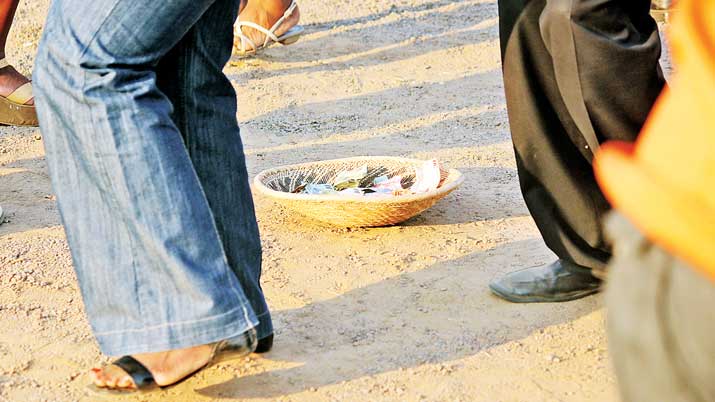Political players in Botswana shouldstrongly speak for electoral reformsbefore the 2014 elections. Somechanges may be late for 2014 but others canbe considered. The idea for reforms shouldbe to improve the responsiveness of electoralprocesses to public wishes and expectations.Improvement of the electoral processes canbe achieved through nurturing enhanced impartiality,comprehensiveness, transparency,honesty and accurateness. There is a need forpolitical, administrative and legal reforms asthe last reforms were in 1997 after a referendum.Some changes in 1997 such as automaticsuccession of the Vice President upondeath, retirement or resignation of the Presidentwere detrimental.Given the fact that Botswana has an executivePresident with extensive powers of controland infl uence, this is a compelling reasonfor the President to be popularly elected.
TheState President must get popular mandateto be able to exercise legitimate politicalauthority. The de facto one party state thatis Botswana can partly be attributed to thewinner takes all fi rst-past-the-post electoralsystem. Alternative electoral systems shouldbe explored and there is a need to developan electoral system that will better refl ect thewill of the people.Public funding of political parties and orcandidates is essential to level the politicalplaying fi eld. This should be augmented byproper electoral laws governing funding ofpolitical parties to avert the negatives associatedwith private and often highly secretivefunding. Putting a ceiling on the amount offunding should be considered.On the administration of elections, it isimportant that the Independent ElectoralCommission (IEC) should be removed fromthe Offi ce of the President as this tarnishesits independence.
The President should notappoint the head of the IEC secretariat andshould not determine the timing and the dateof elections. Political manipulation is likelyin this scenario. Lord Chief Justice Hewart inR v. Sussex Justices, ex parte McCarthy saidthat “It is not merely of some importance,but is of fundamental importance that justiceshould not only be done, but should manifestlyand undoubtedly be seen to be done”.Therefore, it is not enough for the IEC and itshead to be independent, but they should alsobe seen to be independent. In other words,Justice must be rooted in confi dence andconfi dence is destroyed when right-mindedpeople think: ‘The IEC is biased’.”The IEC should initiate new strategies,structures, policies, procedures, and technicalinnovations that will enable it to implementits legal responsibilities and deliver its servicesmore effi ciently, effectively, and sustainably.It is important that the voting day bea public holiday to enable electorates to exercisetheir franchise freely without hindranceof having to go to work.
This is another wayof combating voter apathy and to ensure largevoter turnout.Other incremental changes desirable includeaway voting, where one can vote outsidetheir voting station. This should apply tothose in offi cial visits or duties within or outsidethe country, and sports clubs and otherorganizations on trips during voting day. Thephysical impaired, pregnant women and thevery old should be catered for in a specialdispensation a day before the general pollsjust like the IEC offi cers and security apparatuses.The IEC should introduce new technologyfor services such as voting, voter registration,or electoral logistics for purposes of effi ciencyand effectiveness of the electoral process.
It should make informed voting accessible togroups such as women, minorities, remotearea dwellers, and the physically impaired.The state media should come up with rulesand regulations to ensure that broadcastingtime is allocated equally and fairly betweenparties and candidates in a non partisan manneras it has the obligation to enhance credibilityof the electoral process through faircoverage.

